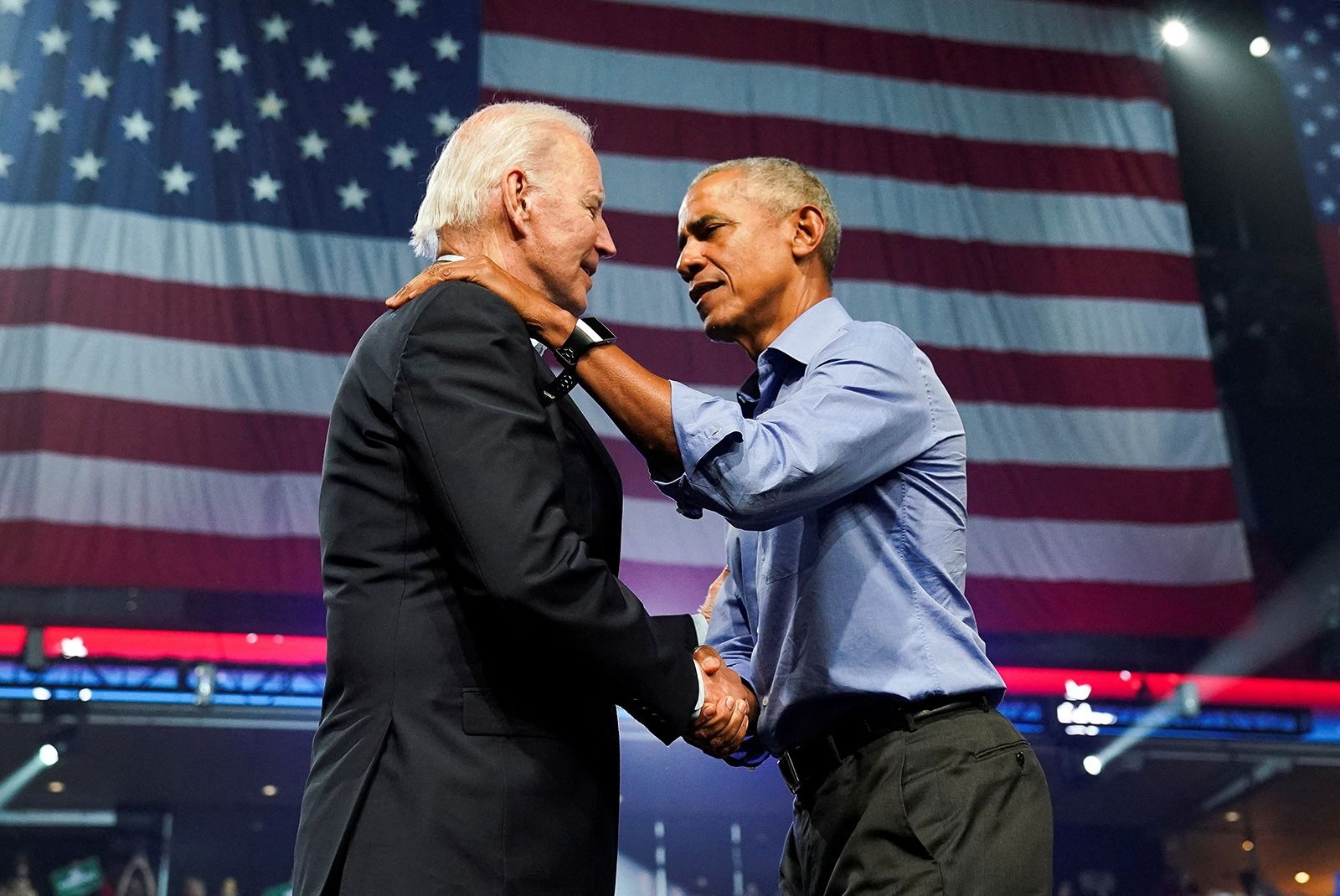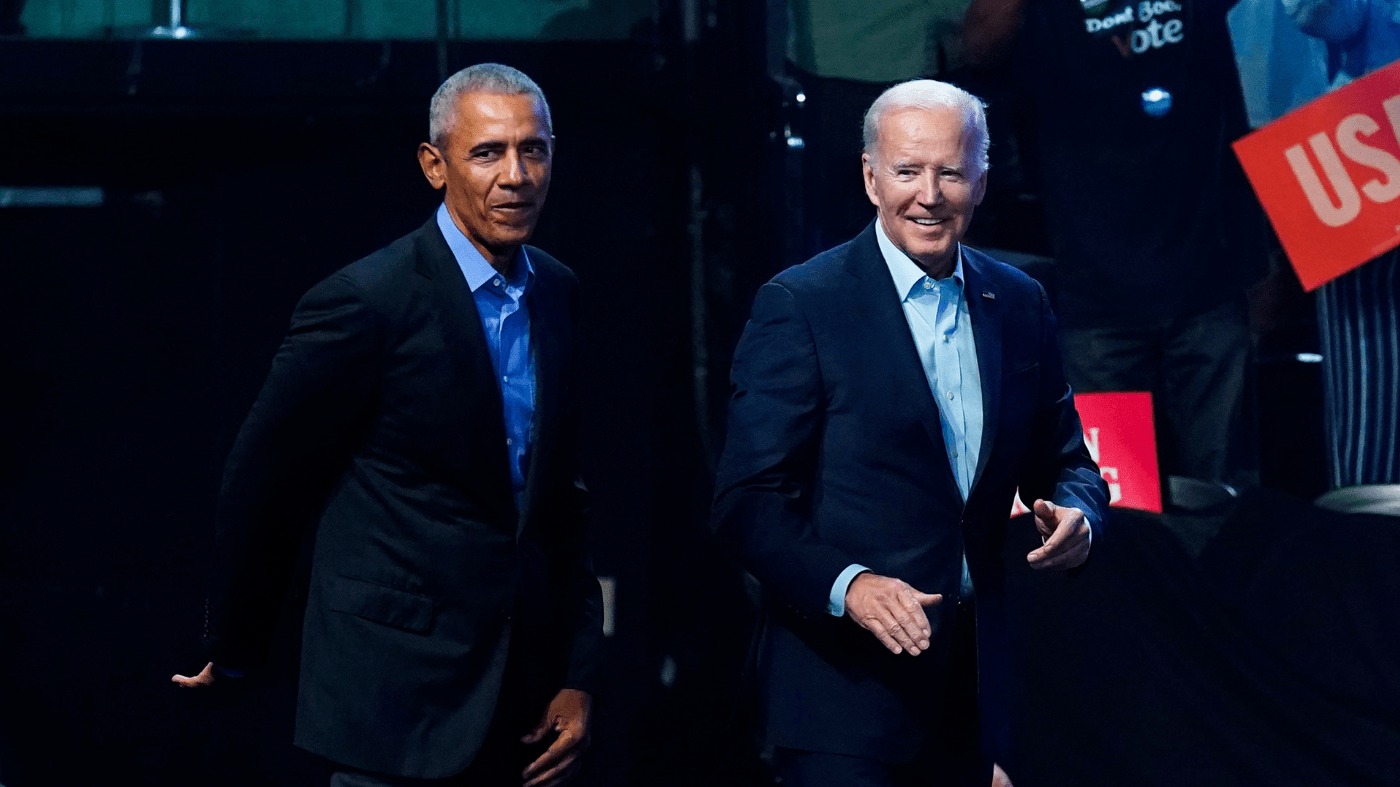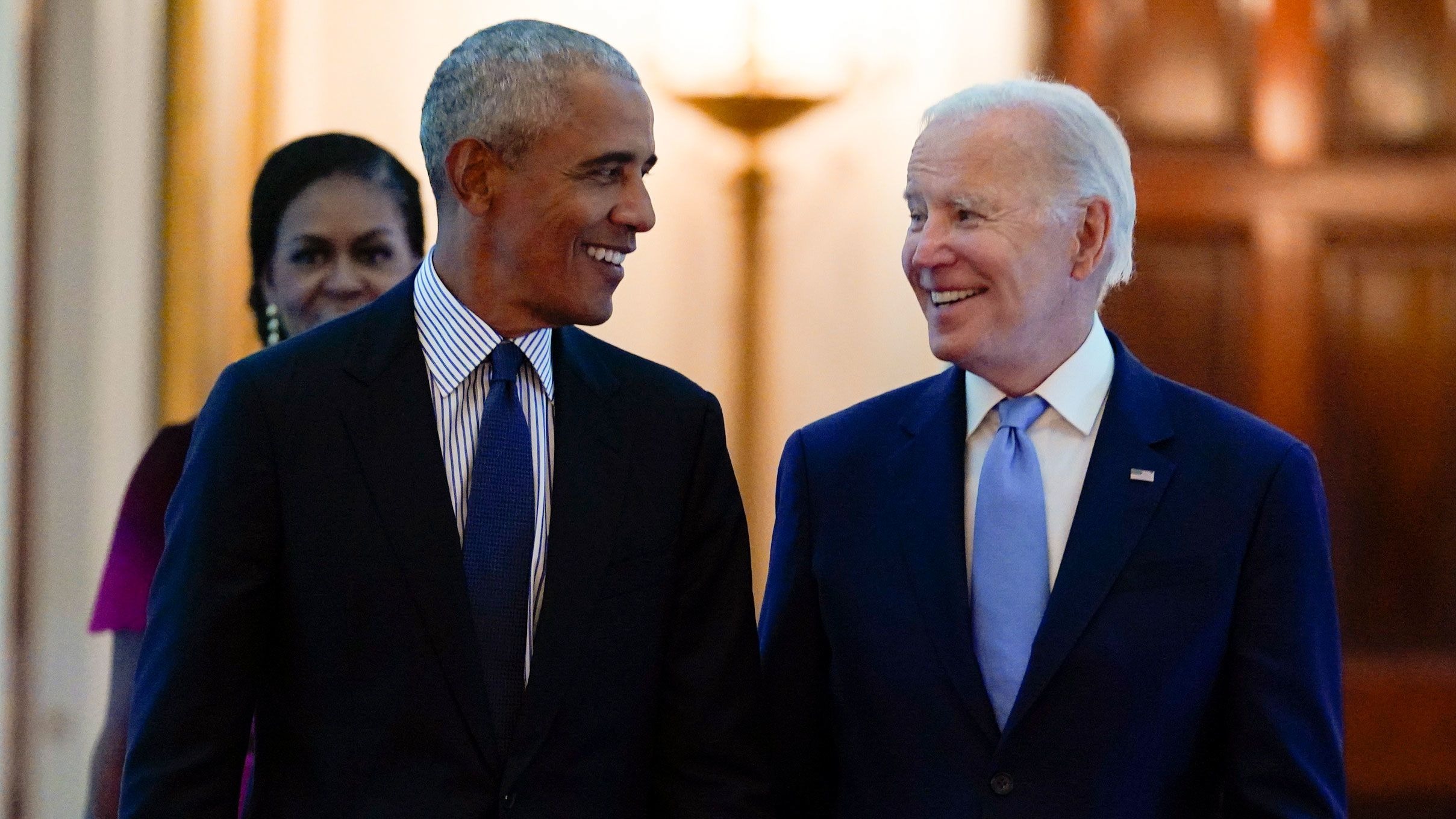President Joe Biden is leveraging his longstanding camaraderie with former President Barack Obama in a fresh series of social media ads aimed at bolstering small-dollar donations for his 2024 reelection campaign.
This move comes as Biden experiences a dip in poll numbers among key voter demographics, including Black, Latino, and younger voters, despite outpacing former President Donald Trump in complete fundraising.
The ads, designed to resonate with a broad audience, highlight Biden and Obama’s personal and professional bond, cultivated over their eight years together in the White House.

The campaign uses this dynamic to create light-hearted, approachable content that encourages even the smallest contributions. In one of the ads, Obama playfully suggests that the cost of a morning coffee can contribute to Biden’s reelection efforts, while Biden emphasizes that no donation is too small to make a difference.
This strategy reflects an understanding of the importance of grassroots support and the power of small-dollar donations, which can both broaden the donor base and boost voter engagement. The messaging also underscores the urgency of preventing Trump’s return to office, directly appealing to voters’ sense of responsibility in safeguarding democratic values.
The introduction of these ads coincides with a decline in Democrat support among Black voters, a traditionally strong demographic for the party.

Recent polling data, including a Wall Street Journal poll, indicates that Trump’s support among Black men in seven swing states has climbed to 30%. This shift underscores the need for the Biden campaign to reinforce its connection with these critical voter segments.
To replicate the success of a previous fundraising event, where Biden and Obama raised over $25 million at a star-studded gathering in New York City, the campaign is positioning these ads to capitalize on the popular “buddy” dynamic between the two leaders.
With $192 million in cash on hand for Biden’s campaign, compared to $93 million for Trump’s, the financial advantage is clear, but the challenge remains to convert this into sustained voter support across all demographics.
